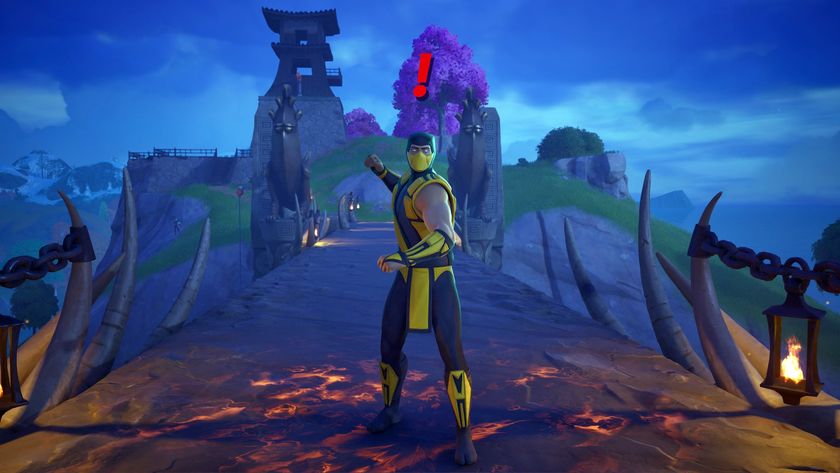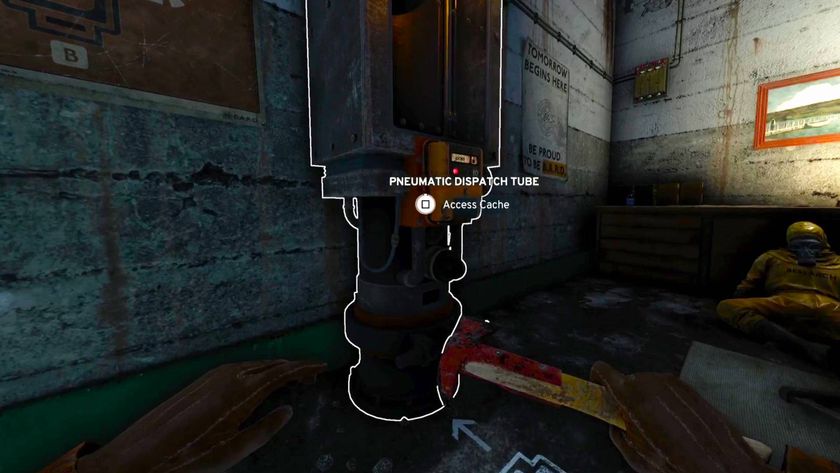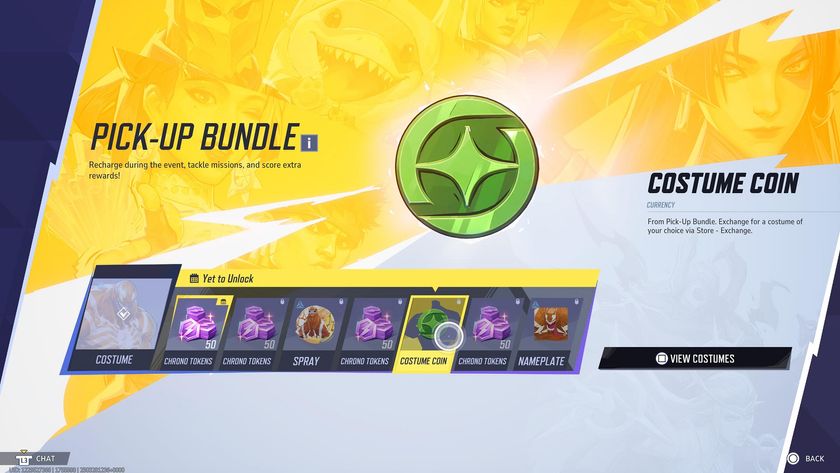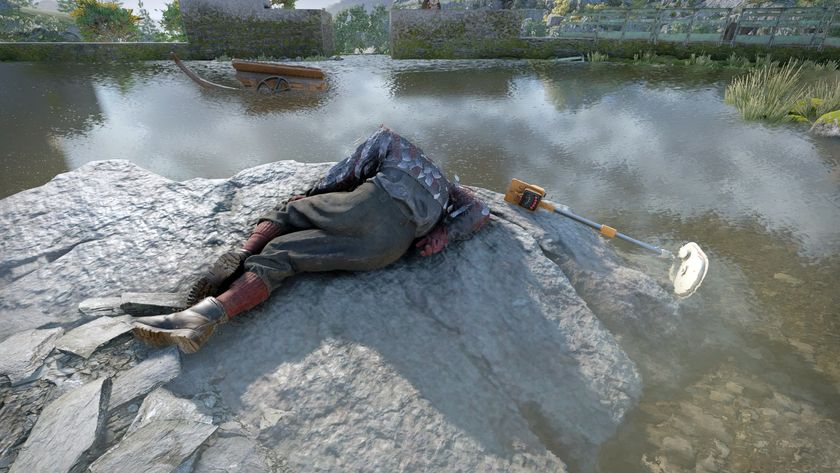UFC Undisputed 3 career mode guide
Go from being a nobody to a somebody with our career guide
Gameplans
Instead of using one of your actions for training or learning a new technique move, you can create a gameplan for an opponent. There are eight gameplans to choose from, each with a hefty amount of bonuses. Of course, there are an equal number of negatives to each gameplan as well, so you really have to be aware of how you’re planning to attack your next fight.
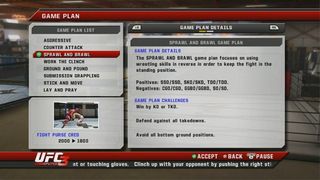
All of the gameplans have three objectives you must complete in a one-round sparring session in order to earn the highest possible benefits. Even if you don’t succeed in all three tasks, you will still earn some bonuses for your next fight. Every gameplan stat boost only lasts for the very next fight, and you only have to complete the objectives in the sparring session. Once you’re in the actual fight, you can approach it any way you want. It’s just best to stick to the script you decided on.
Aggressive:
This gameplan is built all around striking, and ending a fight quickly. Big bonuses are doled out to standing strikes, kicks, and clinch and ground offense. You lose a bit of cardio and footwork, as well as seeing decreases in all of your defenses. Early on, this game plan isn’t a bad one to implement. The further you get in your career, the less viable an option this becomes.
Counter Attack:
You’ll lose a bit of strength, speed, and ground defense, but the big upgrades to cardio, footwork, and striking and kicking make this gameplan one of the most reliable in the game. Great cardio and striking can make all the difference in a fight, so always consider the Counter Attack plan as one of the top choices.
Sprawl and Brawl:
Striking, kicking, and takedowns all get boosted in this great gameplan. A great way to quickly boost stats to defend against opponents who have heavy ground tendencies, the Sprawl and Brawl is another gameplan that can be used for almost every fight. You lose a little ground game proficiency, but the upgrades you earn more than make up for it.
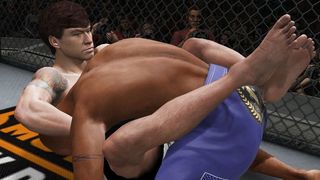
Work the Clinch:
Only fighters with Muay Thai backgrounds need apply. The clinch gameplan is great for fighters who punish up against the cage, and can dish out big punches and kicks from up close. This isn’t a strategy that will work for everyone, and there are other strategies that offer similar benefits without relying exclusively on the clinch.
Ground and Pound:
Fighters with a strong wrestling style would do well to utilize this gameplan. What you lack in standing strikes, you more than make up for in ground abilities. If you enjoy punishing opponents on the ground, this is without a doubt the gameplan for you. Anyone who prefers standing though would do well to avoid this plan.
Submission Grappling:
This is the least impressive gameplan included. Unless you are a devoted submission artist, there is no reason to focus your entire gameplan around the submission. The increases you receive in submission ability don’t come close to outweighing the decreases in striking.
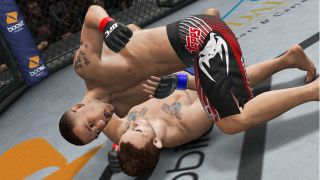
Stick and Move:
Like Sprawl and Brawl and Counter Attack, Stick and Move is another gameplan that works well throughout your career. Increases in footwork, speed, and standing strikes and kicks give you a great advantage over almost every opponent. You don’t get the cardio bump, and you do lose a bit of ground game ability, but most computer opponents will fall to this gameplan if you execute it properly.
Lay and Pray:
The absolute worst gameplan both in the game, and in real life, Lay and Pray is based around you merely taking your opponent down over and over again. You get boosts to strength and cardio, as well as takedowns, but it’s a boring way to fight. You can get virtually the same bonuses from Ground and Pound, with the added bonus of better ground striking.
Gameplans are best used when you take a fill-in fight, and only have one action to use. You get tremendous boosts that should help you prepare better for a fight on short notice. Gameplans are also the cheapest training option in the game. Every training session, gameplan, or camp session you partake in will cost you some cred. The cred is taken out of your anticipated pay check, so you will never be in the negatives, and you will always be able to afford training.
Sign up to the 12DOVE Newsletter
Weekly digests, tales from the communities you love, and more
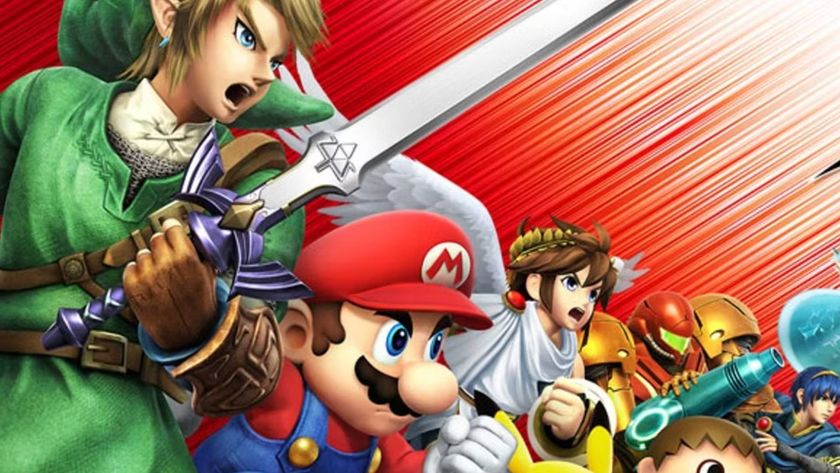
Super Smash Bros. Director Masahiro Sakurai has a friend in Undertale developer Toby Fox - all because of how deeply their posts are read into

Smash Bros creator Masahiro Sakurai is surprised the Switch 2 Direct is an hour long, and no, he doesn't know what's coming, even if "people are going to suspect no matter what"

